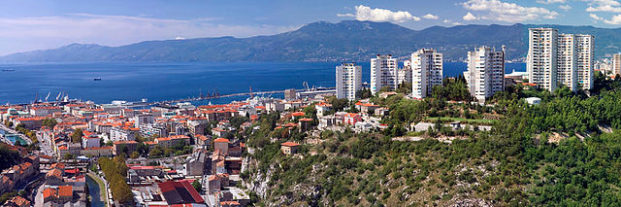
Rijeka, Croatia announced on June 13th its position as the fifth official Vanguard City in the Institute of Global Homelessness’s A Place to Call Home campaign. The effort in Rijeka is spearheaded by Head of the County Social Policy Department and Youth Dragica Marač and Director of Depaul Croatia and head of Rijeka’s House of Refuge, sister Veronica Mila Popić. Co-operation in this project was signed by Primorsko-goranska County, Rijeka Archdiocese, City of Rijeka, Center for Social Welfare Rijeka, with Depaul Croatia as the key coordinating body.
The City of Rijeka, in partnership with Primorje-Gorski Kotar County, the Rijeka Archdiocese, the Center for Social Welfare, Rijeka, and Depaul Croatia, have pledged to work toward a specific goal by the year 2020 – ending street homelessness, reducing street homelessness, or a goal specific to a population of people living on the street.
“By the end of this year, we want to initially establish the number of people living in Rijeka living as homeless people and in which locations they live,” explained Ms. Marač. “We will do this with field assistants, and we will include professional staff in mobile teams. Based on this we will look at the needs for the first emergency acceptance of these people.”
Sister Popić said Rijeka’s participation in the campaign will help the city gather the necessary information, including how many people are experiencing homelessness and where they reside, to effectively address homelessness.
“We think they are living both in Rijeka and in the county, but we do not know exactly how much they are and where they all reside, so the initiative will help gather data that would help,” Sister Popić said.
The first steps to provide emergency accommodation are already underway and accommodation is planned to be provided in smaller facilities. Sister Popić emphasized that the initiative envisages an innovative system that can be applied later in other Croatian cities.
Ms. Marač said that homelessness is a social problem that needs wider recognition and approaches, affecting not only people living in cities, but also, for example, in abandoned facilities in smaller places. She stated that the individuals working in the homelessness service sector, such as social workers and psychologists, will join together to complete field work to gather data throughout the region.
Read more about the announcement and plans in Rijeka here, here, and here.
